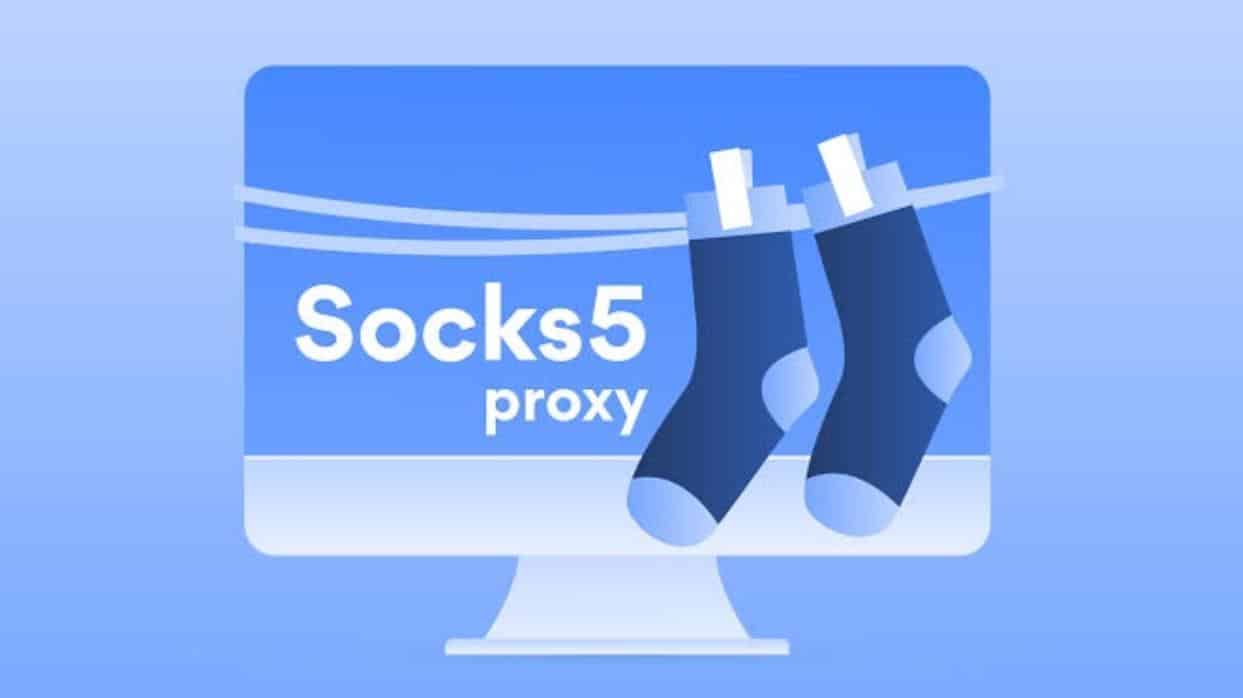Today, I'm gonna tell you why, how ISP proxies are different from other proxy types, and where you can get the best ISP sneaker proxies and ISP proxies for other use cases.
In a rush? We've compiled a list of our top picks for ISP proxy providers,
What Are ISP Proxies?
In the last couple of years, ISP proxies – also known as static residential proxies – skyrocketed in popularity.
First, let's define what an ISP proxy even is. It's an intermediary IP address registered under an internet service provider (or an ISP) but doesn't involve end-users.
In other words, it's hosted on a server at a datacenter and not a phone or laptop like regular residential proxies. By hiding your IP address, ISPs ensure that a bot or a scraper you use looks like a legit human. So the name makes sense, right?
Then why are ISP proxies also called static residential proxies? Well, static residential proxies are the older name. It was used by the few providers that sold them. The name came from the fact that these proxies are hosted on servers and don't need to rotate like residential proxies. They remain static.
But, when the sneakerhead community discovered this proxy type, they changed the name to ISP proxies. Nowadays, ISP proxies are by far the more popular name. No surprise there – static residential proxies are a bit of a mouthful.
Pros of ISP Proxies
Now let's figure out why this proxy type is becoming more and more popular.
They Are Fast
Well, to start, ISP proxies are fast. Unlike flaky consumer connections, data centers run on 1 Gbps or even faster lines. This ensures a low response time that barely impacts your connection speed.
They also have high uptime. How often does a commercial server go down? Most ensure 99.9% uptime, so the answer is: barely ever. With backconnect servers, ISP proxies can rotate fine, so you also have that option on your hands.
High Anonymity
And, of course, one of the biggest pros of ISP proxies – is high anonymity. Hidden under consumer internet service providers, ISP proxies look like legitimate IP addresses. This lets them avoid security mechanisms that rely on IP reputation.
Cons of ISP Proxies
At first sight, the benefits look pretty amazing – and for the most part, they are. But some disadvantages make ISP proxies less of a perfect option.
They Are Expensive
The most obvious downside is their high cost. If bought per IP address, they would cost you 2-3 times more than a private proxy. One gigabyte is cheaper than a residential proxy network by a few dollars, and ISP proxies have a limited reach.
Like datacenter proxies, residential static addresses are held in servers worldwide. The costs and operational challenges make renting several servers pretty hard.
They Have Fewer Subnets
Another downside is that ISP proxies have fewer subnets. Proxy providers that lease residential IP addresses from ISPs make IP subnet ranges available. Static IPs can have a lot of subnets. But peer-to-peer residential proxies can provide a level of stability that ISP proxies won't.
As you can see, ISP proxies are very dynamic, but they have downsides. Keep these pros and cons in mind when considering whether ISP proxies are the right choice for you.
Are ISP Proxies Dedicated?
You might be interested to know if ISP proxies can be dedicated. The answer is yes. Like private datacenter proxies, ISP proxies can be dedicated to specific tasks. Providers have complete control over them, unlike peer-to-peer residential IPs.
Getting dedicated ISP proxies will ensure a clean history with the websites you want to use them on. You might also have control over locations and response time. These are especially important for use cases like sneaker copping, where you want to get fast IPs from major consumer ISPs.
When Should You Choose ISP Proxies?
So considering all those features, when does it make sense to use ISP proxies over DC or residential IPs?
Let's say you're targeting a protected website that gives DC IPs a hard time. For example, Google, eBay, or a sneaker site. And you need a consistent identity. ISP proxies are static, meaning you can keep the same IP address for as long as you like.
And what if you want unlimited bandwidth? Rotating residential proxies nearly always charge by traffic, which can be inefficient. Here you have the option to pay per IP. Pretty nice, right? But would ISP proxies be a good option in your case? Let's see where they excel.
One use case that quickly comes to mind is running multiple social media or e-commerce accounts. These platforms often use browser fingerprinting; still, having a good IP reputation can help keep the accounts safe. Static residential proxies work just as well for web scraping if the cost is reasonable. They are also a means of alternative acquiring content for your website.
But the most popular use case today is sneaker copping. Shoe retailers suffer from bots, so they've armed themselves with advanced protection systems. What's more, ISPs have a fast connection speed and IP-based pricing. Both of those features are great for copping sneakers.
What Are the Best ISP Proxies for Sneakers Copping?
But amongst the many providers, which ones offer the best sneaker proxies?
Before we get into it, I must note that testing sneaker proxies are tough. This is because every drop is different, and it's hard to say whether the proxies or the bot messed up when things go bad.
Also, shoe stores are two different beasts regularly and during a drop. This is why this list of best ISP proxies is slightly less scientific than usual. It includes specialized providers largely based on their reputation and sneakerhead testimonials.
We spent several months monitoring success posts on Twitter. To make it fairer for the smaller providers, we divided the mentions by the number of members in their Discord groups. Is this way of counting completely accurate? God no, but frankly, it's the only way that works.
1. Leaf Proxies

The first provider I recommend is Leaf Proxies. In general, this is one of the most popular sneaker proxy providers with a good reputation. The provider offers reasonably priced monthly and weekly ISP proxy plans.
2. ProxyDrop

Now, as you can see, according to this metric, my second recommendation is obviously ProxyDrop. Even though this provider is still new, its proxies are performing very well. Definitely worth checking out.
3. Oculus Proxies

Oculus Proxies is another great provider. It's popular and well known for its ISP proxies. Oculus' servers are located in New York, Virginia, and Chicago. So you'll have the most popular US places covered.
4. Space Proxies

And our final proxy recommendation for sneaker botters – Space Proxies. This is a good choice if you're looking for a wider range of locations since the provider offers both US and EU ISP proxies.
What are the Best ISP Proxies for Other Use Cases
Wanna know more about sneaker copping? Then check out our sneaker playlist full of
useful tips. But what if you're not interested in getting sneakers? No problem. Here's a breakdown of the best ISP proxy providers for any other use case.
1. Bright Data

Bright Data owns a smaller pool of static residential IPs. But it's still pretty large, covers more countries, and supports SOCKS5. This provider is known for its strong infrastructure and advanced proxy management tools. You can filter, rotate, and manage the IPs in several ways.
So, the service is technically demanding but can be very powerful in the right hands. Bright Data charges by IPs and traffic or traffic only. This means you can buy individual IPs or access a pool of addresses.
There's also an option to get private proxies, which only you control for specific domains. The provider allows paying as you go, but you'll probably be better (or at least cheaper) off with a monthly plan.
2. Rayobyte
Another provider worth checking out is Rayobyte. It's new to ISP proxies, so it still has a small pool and limited locations. But that shouldn't fool you: this datacenter proxy veteran knows what it's doing.
The ISP proxies come from major consumer ISPs and are spread throughout multiple ASNs to avoid carpet bans. The format is an IP list, but Rayobyte has a beta-stage tool for IP rotation. You can choose between HTTP(S) and SOCKS protocols. Rayobyte's ISP proxies are expensive, but you don't have to buy much, and they come with unlimited bandwidth. This makes the pricing very predictable.
3. NetNut
NetNut is one of the largest ISP proxy providers on the market. It claims that its IPs have been used by real people, so they should be harder to block. With NetNut, you connect via a backconnect server, which can give you static IPs or quickly rotate them. The provider offers specialized pools for different use cases, so make sure to let it know what you will use the IPs for.
NetNut charges by traffic and has a wide range of plans starting from $350 for 20 GB. While the service is okay for hustlers, it's mostly aimed at enterprises and resellers.
4. Oxylabs

And finally, Oxylabs. It's best known as a residential proxy provider, but it also sells ISP proxies. You can get thousands of ISP proxies in Western Europe and the US. So, if the other options don't make the cut, you can always try Oxylabs. Especially if you have large needs.
And that's ISP proxies explained.







